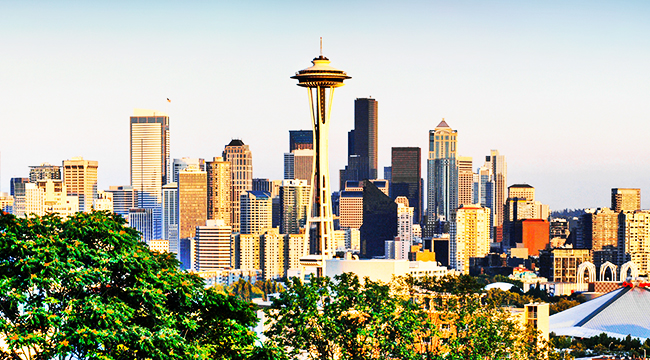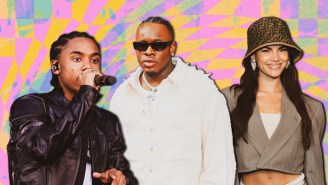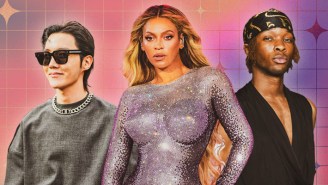
The old saying is true, you can’t ever really go home again. I lived in Washington State for about seven years, from the tail-end of 2008, when I first arrived on a new Army posting to Fort Lewis — a sprawling installation just south of Tacoma — to the beginning of 2015, when family commitments and job prospects lured me to the Midwest. As someone who lived a pretty nomadic existence growing up, flitting from house to house, city to city and state to state in a pretty quick fashion, this was an especially formative and uncharacteristic block of time in my life.
I deployed to Iraq out of Washington in 2009. I met my future-wife while living there, and married her, where else, but within the lofty confines of the Space Needle. My brother and sister both eventually relocated to the area and we enjoyed a familial closeness that kind of escaped us while were we just kids. I attended Evergreen State College — one of the most liberal, liberal arts universities in the country — in Olympia and earned a degree. Eventually, I started blogging in my spare time, which led to writing professionally, which led to this career I now enjoy as a full-time music writer, beyond all my wildest expectations. Most, if not all, the most consequential memories I have occurred within the perennially overcast confines of the Evergreen State.
All that to say, I was pretty excited to return for the first time since I left to check out the Upstream Music Festival, an event centered around Seattle’s “original neighborhood” Pioneer Square. To be quite honest, though I regularly attended shows and events in other parts of the city — Queen Anne, Capitol Hill, Belltown, Seattle Center — I rarely ventured in and around Pioneer Square while a resident, minus the times I went and caught either a Seahawks or Mariners game. I was also pretty curious about what Upstream had to offer that set it apart from other local-ish fests like Sasquatch, Capitol Hill Block Party, and most especially, Bumbershoot.
I suppose the answer was a certain Seattle-ness that those other events might not carry. Bumbershoot, in particular, takes place under the eye of the Space Needle, in the very heart of the city, but in my experience, while you’re in the thick of it, it still feels like a festival. Since I departed, Bumbershoot was sold to a new corporate master, AEG, so at least from what I’ve heard from friends, it’s lost some of the character and uniqueness that once set it apart from the other homogenized events on the scene. C’est la vie. I’ll forever fondly recall watching The Replacements rip it onstage next to a very enthusiastic Mike McCready, the lead guitarist from Pearl Jam.
Upstream had a different vibe altogether. Yes, there was a main stage that hosted some pretty fantastic performances over the weekend, but the real treasures, the moments I most fondly remember happened in the 16 or so local venue spaces that had been taken over for the event. Take the Central Saloon for example. For those that don’t know, it’s the oldest watering hole in all of Seattle (though not the oldest in the entire state), and one of the most important live incubators of the fledgling grunge scene through most of the 1980s. Its walls are adorned with posters advertising concert’s past, featuring icons like Soundgarden, Nirvana, Mudhoney, The Melvins, Green River, and so on.
That Saturday night, the musical programming was directed by none other than Nirvana bassist Krist Novoselic, who in addition to opening the evening with his band Butterfly Launches From Star Pole, and closing the evening with his other newer band, Giants In The Trees, also acted as an MC of sorts, regaling the intimate crowd with tales of grunge days gone past. My personal favorite was his story of how, back in the day, people would take bets on how many songs into the set Soundgarden frontman Chris Cornell would ditch his t-shirt, or what the regulars in the scene lovingly referred to as going, “The Full Cornell.” He also recalled the time that Nirvana opened for festival headliners the Flaming Lips and got their asses handed to them by that group’s elaborate theatrics and incessant strobe light aimed directly at the crowd for the whole show. Later, Jack Endino — the man who produced and recorded seminal albums like Nirvana’s Bleach for instance — took the stage with his band MKB Ultra and promptly blew the roof of the place.
I also recall with a special wistfulness the absolute last musical performance at Upstream — 11 PM on a Sunday — with Detroit rockers Protomartyr holding court at Elysian Fields, a newly renovated bar just across the street from the parking lot at Century Link Field where the mainstage of the Fest was set up. Confetti flitted through the air and The Flaming Lips’s immortal “Do You Realize?” was reverberating off the Hawks’ nest as I made my way over to the venue. I could sugarcoat it and say that the band were pouring their hearts out for a willing but intimate crowd, but “intimate” would be understating it. I think I counted maybe 60 people in the whole place. Call it fatigue, the 50-degree temps outside, whatever, the crowd was thin.
Still, as someone who’s enjoyed Protomartyr ever since they dropped their album The Agent Intellect in 2015, I was impressed with how they didn’t let the diminutive audience deter them from performing their ever-loving asses off. It was an incredible set! Loud, angry, boozy, filled with the requisite levels of doom. I felt genuinely remorseful that more people weren’t here to witness this, but also, the odd satisfaction that comes from knowing you’re seeing something truly unique and special.
https://www.instagram.com/p/Bjp1x8iFuKz/?tagged=upstreammusicfest
The greatest pure performance of the weekend however, came from the first day’s headliner Miguel. If you haven’t been paying attention, Miguel has emerged through the 2010s as our finest purveyor of psychedelic-tinged f*ck anthems, that drift among the realms of pop, rock and R&B. Onstage, you simply can’t tear your eyes off the guy. His sometimes-frenetic, sometimes-explicit dance moves are almost as captivating as the force of his voice, and the power of his backing band — including an incredible guitarist, who adds some very welcome, Van Halen-style bombast at different intervals. He’s as full a package as you’re liable to find in music today. A James Brown’s swagger and precision with Marvin Gaye levels of sexuality oozing from his pores.
Ultimately, Upstream offered me the chance for a distinctly Seattle experience that I was truly hoping to enjoy, but didn’t really expect to get. Coffee shops, craft breweries, and fish in every form — battered, sautéed, or sashimi’d — abounded as I flitted from one venue to another. The nostalgia for years and moments past welled up in my chest, adding extra layers of poignancy I didn’t expect. A long walk up 2nd Avenue to Dick’s for a burger was especially cathartic. In the end though, with the people who made all those moments special scattered 1,000s of miles to the wind, I knew that I had moved on, and so, apparently had Seattle. You can’t go home again, but it’s nice to visit from time to time.






